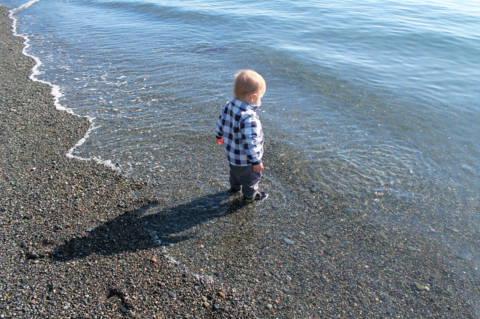Three big issues for Election 2015: Atlantic, Pacific, Arctic

Credit: Kasey Eriksen via Flickr
Canada has the longest coastline of any country, yet ocean health rarely makes it into federal election debates. Considering the prosperity, food, recreation and cultural opportunities oceans provide, our leaders would be wise to start talking about the big issues they face.
Protecting oceans benefits all Canadians. The air we breathe and climate stability are inextricably linked to the health of our oceans. In B.C. alone, $13.5 billion is generated every year in GDP from ocean-based industries and more than 84,000 jobs are created.
While ocean protection has been slow, not all the news is bad. Management of salmon and other fisheries on the West Coast has improved, endangered species such as B.C.'s southern resident killer whales are being helped with recovery plans, effluent flowing into oceans from mills and mines has decreased and marine protected areas and national marine conservation areas like B.C.'s Gwaii Haanas and Nova Scotia's Gully have been established.
Yet Canada continues to fail to meet its own protection commitments. Only one per cent of Canada's marine areas are protected, not even close to the commitment made through the UN Convention on Biological Diversity to protect 10 per cent by 2020. Other countries, including the U.S. and Australia, have met and exceeded their targets. Canada, however, ranks dead last in marine protection among the countries with the largest ocean areas, behind Indonesia, Japan and China.
With climate change, acting on our ocean commitments is more important than ever. Communities must adapt as sea levels rise, oceans acidify and weather fluctuates. On the West Coast, businesses face shellfish die-offs while salmon are threatened by dry steams and warming water. Yet Canada's carbon emissions continue to increase, further threatening ocean health.
As a northern country, Canada is especially vulnerable to climate impacts, which are making their mark on land, sea and ice. Canada's Arctic has been warming four times faster than the rest of the planet. Ice covering the Arctic Ocean is disappearing during the summertime at record rates. By 2050, the top of the world is expected to be free of ice for an unprecedented 125 days a year. This loss of year-round ice cover creates darker patches of land and water that absorb sunlight, adding to the warming effect. Melting permafrost releases methane, which further warms the planet to dangerous levels.
There's only so much local communities can do. Canada could be a world leader in ocean conservation, but we need strong national leadership to get us there. Almost nothing galvanizes support in coastal communities like opposition to more and bigger tankers filled with oil destined for Asia. These communities know well the risks of oil spills to their health and livelihoods, and many have raised concerns with local candidates. They question whether an oil-based economy is worth the risk to the health of their communities.
Given the necessity to act boldly on climate change and the immense importance of oceans to Canadians, it's time we asked some tough questions of those who could be leading our country.
Here are some you can ask your federal candidates:
Canada falls behind many countries in efforts to protect its oceans. What would you do to ensure we meet our UN commitment to protect 10 per cent of our marine area by 2020?
Oceans provide enormous economic opportunity for Canada, yet as we confront the effects of climate change and escalating development pressure from industry, the health of our oceans is in peril. What would you do to keep our oceans healthy?
Would your government increase investment in ocean science to better understand the changes faced by coastal communities and guide decision-making about ocean conservation?
As voters, we have the power to make a difference in this critical conversation. Let's exercise it.
YES, I'm voting on October 19.
Hey! Want more DSF? Join David Suzuki on Facebook

David Suzuki's Blog
- David Suzuki's profile
- 247 followers



